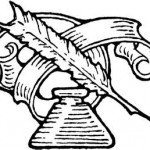On Dazzling Topic Sentences
[Editor’s Note: This month faculty members share their favorite brief writing or oral argument tip. This is the second entry in the series.] In the theme of the Faculty Blog’s topic of the month, the best brief-writing tip I have received is to spend a lot of time crafting excellent topic sentences.
We all know that topic sentences are extremely important. Together, they comprise a brief’s skeleton, without which the lawyer’s argument cannot take shape. They reflect the brief’s essential points, and clarify the relationships between its paragraphs. A reader should be able to understand the basic contours of the brief’s argument by reading nothing more than the topic sentence of each paragraph.
There are a couple of easy ways to improve the quality of topic sentences. First, make sure that all of your most important arguments make their way into one of them. Doing so improves clarity by enhancing the visibility of the key arguments. Second, reading only the topic sentences, ask whether they logically fit together, and make changes to the extent that they do not. This technique helps to ensure that the brief is well-organized and flows smoothly. Finally, as with all aspects of legal writing, prioritize simplicity. Focus on clarity and directness so that the topic sentences can effectively communicate your most important points.


